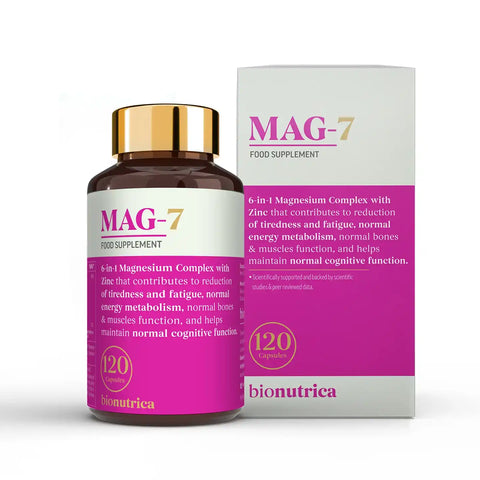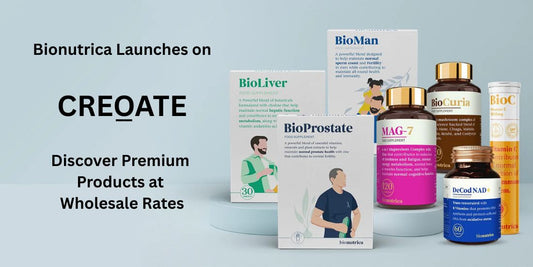Supplements are everywhere on supermarket shelves, in the gym, on impressive livestreams, and in almost every home medicine cabinet. But when you reach for a supplement, should you choose "natural" or one made from synthetic ingredients? Is there an inherently safer, more effective, or better value? This article guides you through the science, UK-specific guidance and data, regulatory references, and practical advice, allowing you to make an informed choice.
An Introduction to Natural and Synthetic Supplements
Natural and synthetic supplements provide nutrients that support health but differ significantly in their origin and processing. Natural supplements are derived from plant, mineral, or animal products and minimally processed to maintain their natural composition, often including beneficial co-factors. Examples include fish oil, herbal extracts, and vitamin C derived from Acerola cherries.
In contrast, synthetic supplements are created in laboratories through chemical synthesis to mimic nutrients found in nature, such as ascorbic acid for vitamin C or magnesium tablets for relaxation.
While both types of supplements aim to fill nutritional gaps and support well-being, natural supplements are often associated with holistic traditions, and synthetic versions are valued for their standardized potency and cost-effectiveness. Both forms play an important role in modern well-being, their use is based on individual needs, health status, and dietary intervals.
How are Natural and Synthetic Supplements different?
Natural and synthetic supplements provide valuable support for nutrition and wellness, but their differences lie in how they are sourced, processed, and absorbed by the body. Natural supplements originate from whole foods and retain beneficial factors that enhance absorption.
Synthetic supplements are made through laboratory methods, providing standardized dosages and cost-effective options. Understanding these differences can help consumers make informed choices tailored to individual health needs.
|
Feature |
Natural Supplements |
Synthetic Supplements |
|
Source |
Derived from whole foods, plant or animal extracts. |
Laboratory-produced, chemically isolated compounds. |
|
Composition |
Includes co-factors (enzymes, bioflavonoids, minerals). |
Usually lacks supportive co-factors. |
|
Bioavailability |
Higher absorption, favors natural metabolism. |
Lower absorption, may require higher doses. |
|
Additives |
Typically free from artificial fillers, fewer additives. |
It can contain artificial additives and preservatives. |
|
Potential Effects |
Generally better tolerated, fewer side effects. |
May increase risk of allergies, poor tolerability. |
|
Cost |
Usually more expensive. |
More affordable, wider market availability. |
Each feature directly impacts the supplement’s effectiveness and safety profile, making it important to consider personal needs when choosing between natural and synthetic options.
Benefits of using Natural Supplements
Natural supplements continue to gain popularity as more people seek out wellness solutions rooted in nature. These products, typically derived from whole foods, herbs, or plant sources, provide nutrients in forms that are often easier for the body to identify and use. Here are the key benefits of using a natural supplement:
- Natural supplements often include beneficial cofactors and enzymes, supporting better nutrient absorption and bioavailability.
- Natural supplements can reduce the risk of side effects or allergies common in synthetic additives in synthetic supplements.
- It provides natural antioxidants, helps combat oxidative stress and support cellular health.
- Natural supplements can address nutritional gaps for those who struggle to obtain adequate micronutrients from diet alone, especially in cases of restricted diets or increased needs.
- While it can support overall well-being, many herbs offer adaptogenic, digestive, or immune support properties, such as ashwagandha for stress relief or probiotics for gut health.
Natural supplements, when chosen wisely, offer a gentle yet effective approach to promoting overall health and well-being.
Benefits of using Synthetic Supplements
Synthetic supplements offer significant benefits, especially for those who struggle to meet nutritional needs through diet alone. Engineered in a controlled laboratory environment, these supplements provide precise nutrient dosages and efficiently address specific deficiencies, making them a practical choice for many.
- Synthetic supplements provide a uniform nutrient content, ensuring that each serving provides a consistent level of beneficial vitamins or minerals for reliable intake and clinical use.
- It can be cost-effective and widely available, making nutritional support more accessible to diverse populations and budgets.
- Synthetic supplements allow targeted formulas designed to correct particular deficiencies (e.g., vitamin D for bone health, iron for anemia), often with higher concentrations commonly found in foods.
- It can be useful for individuals with dietary restrictions, chronic health conditions, or increased needs such as pregnancy or older age, where natural sources may not be adequate or practical.
Synthetic supplements thus play an essential role in modern nutritional and preventive healthcare, providing convenience and precision.
Read More: Best Supplements for Winter Health
Are natural supplements really better than synthetic ones?
Natural supplements are widely considered the preferred choice for those seeking overall health benefits, but whether they are actually better for synthetic supplements depends on several factors. Natural supplements, sourced from whole foods, often contain beneficial co-factors such as enzymes, bioflavonoids, and minerals that detect absorption, bioavailability, and synergistic health effects.
While synthetic supplements lack these synergists. Therefore, studies show that natural versions are better recognized and used by the body, often with a lower risk of toxicity and fewer side effects. They are less likely to cause overdosing, as the nutrients are more balanced and naturally regulated.
However, natural supplements are not always of better quality and can vary depending on the source, processing, and potential contamination if not well regulated. Synthetic supplements excel in uniform dosage, cost, and accessibility, and can be important for treating specific deficiencies where natural food sources may not be enough.
Ultimately, natural supplements can offer broad-spectrum efficacy and reduced toxicity, but the "better" choice depends on health goals, accessibility, and quality assurance.
Should You Take Synthetic Nutrients?
Synthetic nutrients can be beneficial for people who struggle to meet their nutritional needs through food, such as those with specific deficiencies, dietary restrictions, medical conditions, older adults, pregnant women, or vegetarians. They offer precise dosages, reliable quality, and are often more affordable and widely available than natural alternatives.
However, synthetic nutrients are not meant to replace a balanced diet, and excessive consumption can lead to potential health risks, such as nutrient imbalances, toxicity (especially with fat-soluble vitamins), and, in some cases, increased health risks such as cancer or organ damage.
If natural food sources or whole food supplements are inaccessible or inadequate for your needs, synthetic supplements can provide the necessary support—provided you follow the recommended dosage and consult with a healthcare professional for personalized guidance. Ultimately, synthetic nutrients are helpful as a supplement tool, not as a replacement for whole-food nutrition.
Are synthetic supplements good for you?
Synthetic supplements can be good for you when used appropriately, especially if dietary intake alone does not meet your nutritional needs. They provide consistent, precise doses of vitamins and minerals, making them effective in preventing or correcting deficiencies in populations such as older adults, pregnant women, or people with specific health conditions. Synthetic supplements are typically more affordable and widely available than natural alternatives, providing practical access to essential nutrients.
However, synthetic supplements may lack the beneficial co-factors found in natural sources, potentially reducing bioavailability and increasing the risk of side effects or toxicity if taken excessively. Abuse or overuse can cause adverse effects, including nutrient imbalances or increased risk of disease. Therefore, synthetic supplements are best used as a supplement to a balanced diet, under professional guidance. When taken responsibly, synthetic supplements can support health but should not replace whole food sources.
Which One Is Right for You?
Choosing between natural and synthetic supplements depends on your individual health goals, dietary habits, budget, and any specific drawbacks.
Natural supplements are ideal if you prefer nutrients as your whole food, want maximum bioavailability, and value co-factors that aid in absorption. They are often preferred by those seeking overall well-being and minimal additives. However, they may be more expensive and less accessible in standardized dosages.
Synthetic supplements are recommended if you need affordable, widely available, and standardized nutrients to overcome specific deficiencies or health conditions (e.g., iron for anemia, vitamin D in winter). They offer convenience and accuracy but may lack the beneficial cofactors found in food-based versions.
If you have dietary restrictions, medical conditions, or elevated nutrient needs, synthetic supplements can be valuable for bridging nutritional gaps. Natural supplements are best when gentle, aiming for long-term support and reducing potential side effects.
Conclusion
The debate over natural vs. synthetic supplements isn't really about which side wins, it's about making informed, evidence-based choices. Both forms can provide real health benefits when used correctly and responsibly, but neither is automatically better or safer. What really matters is the quality, dosage, and scientific reliability of the product you choose.
UK health authorities consistently emphasise that a balanced diet should remain the foundation of good nutrition, while supplements are best used to fill specific gaps, such as vitamin B12 during the winter or folic acid before and during pregnancy.
Instead of focusing on labels claiming to be "natural" or "lab-made," consumers should look for products that are tested, regulated, and transparently sourced. When nature and science are balanced, guided by research and individual health needs, supplements can play a valuable, helpful role in overall well-being without falling into marketing myths or misinformation.
Also Read: Top Health Benefits of Turmeric and Curcumin Supplement





